JOB POSTINGS
East Aurora HS is seeking to fill THREE part-time positions for their production of Matilda.
Lincoln College Department of Theatre is seeking a Technical Director of the Johnston Center for the Performing Arts and for its Department of Theatre.
McHenry West HS is looking for a director for the Fall Play, school year 2020-2021.
The Conference Center at Prairie State College
is currently recruiting for a part-time Audio-Visual Technician.
Dunes Summer Theatre is hiring a Sound Board Operator/Designer for its 2020 summer season.
Metropolis School of the Performing Arts seeks an instructor for its 2020 Clearbrook on Cue program.
Glenbrook North HS is looking to hire a second theatre director for the 2019-2020 school year.
University of Wisconsin-Parkside
is seeking an Assistant Professor of Theatre Arts. This position will teach 24 credits annually.
Click Here
for ALL
Job Details, or to Submit
a Job Posting.
Kankakee Valley Theatre
Association
announces
non-union
The Music Man auditions on February 10 and 11, 2020.
Dunes Summer Theatre is hosting auditions for its 2020 Summer Season on March 14, 15, 22 & 23.
North Park University's theatre department and production company are developed around a storefront model of creating productions for intimate or unique settings and focus on a holistic training approach.
Aurora University
announces Scholarship Auditions for their BA in Theatre and BA in Musical Theatre.
Western Illinois University is proud to announce auditions for the BFA - Musical Theatre program.
FAME, Foundation of Artistic Mentored in Entertainment (501C3), announces its auditions from January 2-February 25, 2020.
Milliken University
announces auditions for its BFA programs for 2020-2021.
Indiana University South Bend announces entrance auditions for students who plan to begin college in the 2020-2021 academic year.
Click here for ALL Audition Details, or to Submit an Audition.
|
FEATURED PERFORMANCES
Leaving Iowa
Lewis University
1/24/2020 - 1/25/2020
Fri. & Sat. at 7:30 pm
Underground Caberet
Western Illinois University
1/31/2020 - 2/1/2020
Fri. & Sat. at 7:30 pm
As Long As We Both Shall Live (Dinner Theatre)
Vermillion Players
2/7/2020 - 2/16/20
Fri. & Sat. at 6 pm
Sun. at 12:30 pm
Almost Maine
Kankakee Valley Theatre Association
2/8/2020 - 2/16/20
Sat. at 7 pm
Sun. at 2 pm
Crimes of the Heart
Western Illinois University
2/14/20 - 2/15/20
Fri. & Sat. at 7:30 pm
The Spitfire Grill
Western Illinois University
2/26/20 - 3/1/20
Wed. - Sat. at 7:30 pm
Sun. at 2 pm
Visit the
|
Join the ITA on Facebook:
|
| 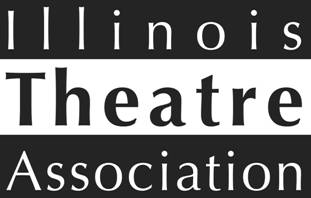
The ITA is a network of dedicated theatre artists and educators
advocating quality theatre throughout Illinois. Please join us!
113 Fairfield Way,
Studio 108
Bloomingdale, IL 60108
312-265-5922 (office)
|
|
Please Visit ITA's Corporate Sponsors:
Elmhurst College
Associate Corporate Sponsor:
|
| 
The Illinois Theatre
Association is partially
supported by a grant from
the Illinois Arts Council,
a state agency.
|
|
eFOLLOWSPOT
January
, 2020
|
|
ITA UPDATES:
Congratulations, and THANK YOU, to all involved in making the 2020 Illinois High School Theatre Festival, "I Still Believe," a huge success A special shout out to Executive Director, Victor Pilolla, and the entire IHSTF Planninig Committee!
_________________________________________________
ITA's Annual Statewide Professional Non-Equity Auditions are being moved to April! Stay tuned to ITA's website for upcoming information.
|
OUTTED! SEXUAL HARRASSMENT IN THE THEATRE COMMUNITY: HOLLYWOOD TO NYC TO CHICAGO
By Joan McGrath, ITA Professional Theatre Rep
The first week in January 2020, Harvey Weinstein, charged with predatory sexual assault, went on trial in New York. That same week, the Hollywood entertainment mogul was charged in Los Angeles for sexually assaulting two women in 2013.
Last month saw the release of "Bombshell," the based-on-fact chronicle of CEO Roger Ailes who was toppled for casting couch behavior by Fox News journalists including Gretchen Carlson, Megyn Kelly and multiple other women. Earlier in 2019, Showtime aired a made-for-tv series on Ailes' sexual abuses called "The Loudest Voice."
Closer to home, a series of episodes victimizing actors and actresses in storefront theatres of Chicago led to the formation of "Not in Our House" in 2015. One enduring outcome is a Code of Conduct for non-Equity theaters in this region.
Sexual harassment is ubiquitous. It is particularly endemic to the entertainment world where power and ambition, passion and rejection are exploited in the disservice of vulnerable aspirants. Now on public display, there is at last recourse, support and a safety net for its victims.
Not in Our
|
|
 |
A meeting of Not In Our House
Photo: Sally Blood |
 |
House was founded by actresses Lori Myers (whom the Illinois Theatre Association honored in 2016 with our highest distinction, the (non-member) Award of Honor) and Laura T. Fisher. "The business is booming" in arts and entertainment scandals, Fisher deadpanned.
Click here for Not in Our House fighting back story, as told by Nelson Pressley in The Washington Post on December 14, 2017.
For more information on Not in Our House,
click here.
Back to Top
|
PLEASE STOP LOOKING DOWN ON COMMUNITY THEATRE
By Timothy Fitzgerald, from On Stage Blog
Intro by Don Shadrow,
ITA Community Theatre Rep
There is a concern that is voiced by many who are involved in community theatre that it as a less important version of the theatre experience. The following article is a reminder of the vital function that community theatre serves not only in the communities we serve but in the theatre community as a whole.
Article Excerpt:
It truly hurts me to acknowledge that there are people out there who try to give community theatre a bad reputation. It's the truth, folks, they exist, and I genuinely feel they need to be educated on the importance of community theatre the benefits that it provides to all of us.
|
|
| DON DALY PHOTO/PROVIDED BY PLAYERS THEATRE |
Having been involved in community theatre for over 40 years...yes, I admit it and do it proudly....I have personally seen this wonderful genre from multiple sides. As an actor, producer, stage manager, director....I have seen it. And the benefits that have been reaped have contributed to many aspects of my life, socially and privately.
|
INTERVIEW WITH RYAN LAMBERT:
IHSTF EXECUTIVE DIRECTOR, 2022
Submitted by Annaliisa Ahlman,
ITA Secondary Education Rep.
What is your name? What pronouns do you use?
My name is Ryan Lambert. Pronouns: He, Him, His
Please tell us about your education or training in theatre.
I certainly did not take a traditional theatre path. I went to school at Spoon River College, a local community college, where I was on an acting scholarship. After graduation, I attended and graduated from Western Illinois University with a BA in History and
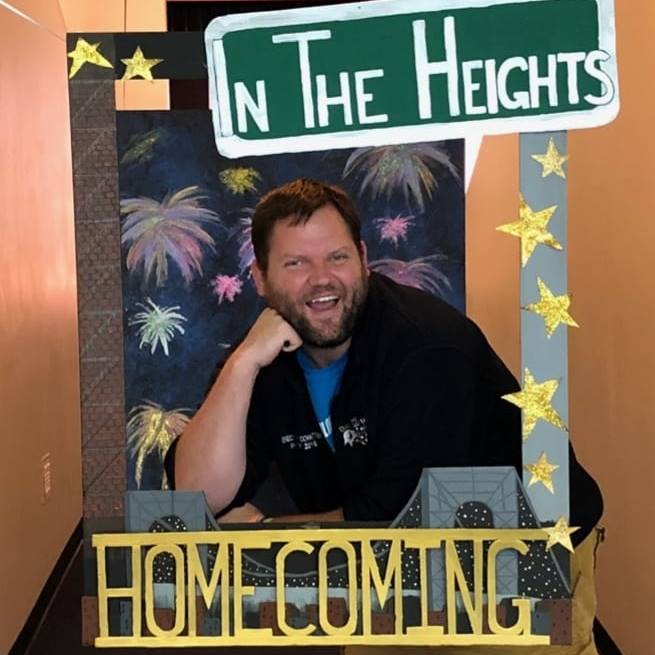 Secondary Education. I also have a Masters in Informational Technology from Southern Illinois University-Edwardsville and am currently enrolled at Western Illinois University to earn a Masters in History. I am currently employed at Farmington Central School District 265 as District Media Specialist, High School History Teacher and Director of Theatre.
What theatre project/production are you currently involved with or in the planning stages for?
I just wrapped
Almost, Maine which was a fantastic production for our small school. We are preparing for
Big Fish for the April 2020 musical production.
What is the best thing about your job?
The best thing about my job is opportunity. My colleagues and administration know that I am not afraid to ask for anything--from an internship at the Library of Congress to my continual involvement in Theatre Festival-- they know that I will ask even if I know the answer is no. But, as I have learned throughout my years, what if the answer is yes? The best part of my job is having the chance to ask for these things not only for myself but to ensure that my students, in a small community, have the same opportunities as those in large schools.
What is the biggest challenge you face related to your work in the theatre?
The biggest problem I have faced in theatre is how to make theatre important to my colleagues and coaches in our school. Sports, as any theatre person knows, takes priority in almost all aspects of school. From scheduling to funding, it just works that way. Only in the past few years has our program grown to include a larger following from students and community members. And because of this, we honestly don't have this issue as much anymore. Recently, with the support of our School Board members and Superintendent Dr. Zac Chatterton, have we renovated our theatre space. I was involved in the planning process and updates, which is
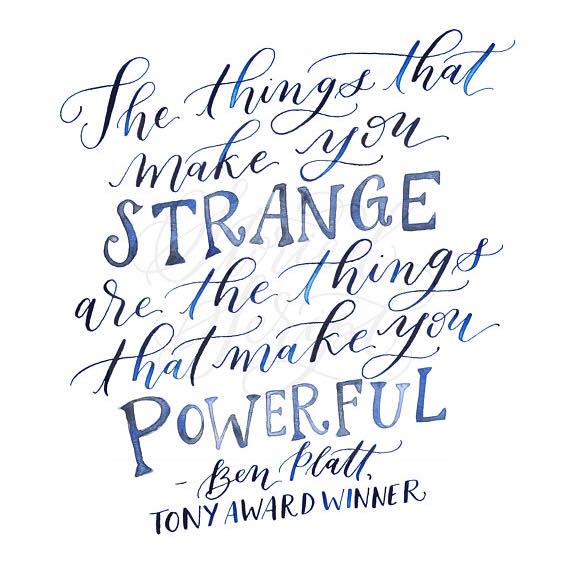 not always the case for some fellow directors I have talked with. It is also within the past few years, our coaching staff has taken note of the work our theatre program has done and work with us to ensure all students have a chance to take the stage. The perfect example was when our drama production of Almost, Maine opened the same night as the Playoff game for our football team. I was immediately called by the football coach to discuss the whole situation, get my feelings on it and so on. We made the decision together -- football and theatre. On our closing night, several members of the coaching staff and players attended our show. Talk about class within a program and school. Don't get me wrong, it is still an issue we have all the time but open communication and respect for each others program help guide to fitting solutions.
Of what theatrical accomplishment are you most proud?
My proudest moment is not my own. But when students, current or former, talk about how theatre has impacted their life, how a s
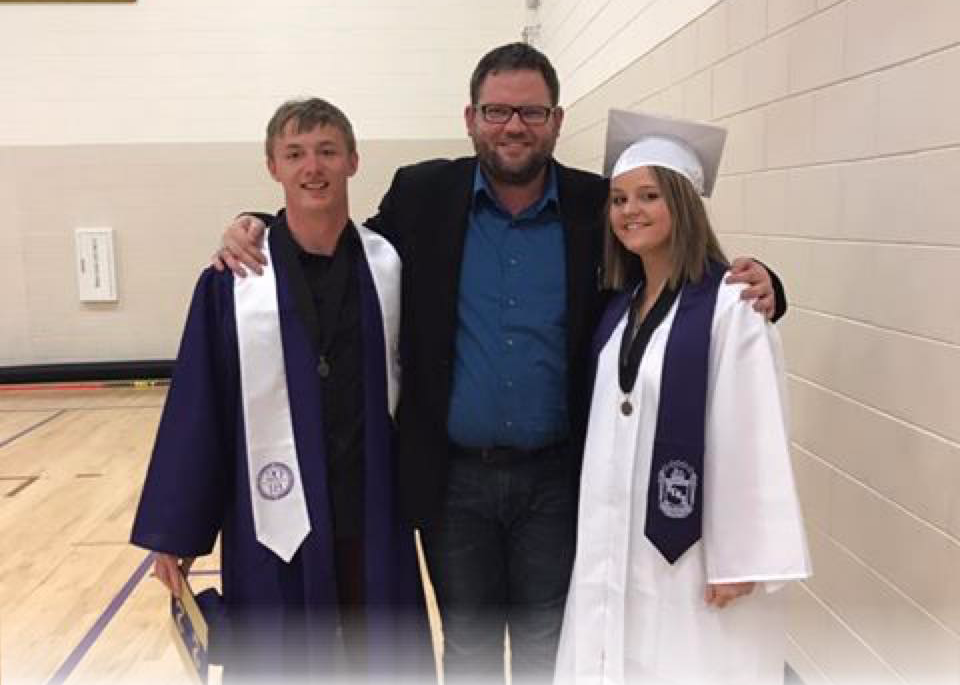 how we did together was the time of their life, how they have taken the stage in college and did so because they love it, that is what I am proud of. I wholeheartedly enjoy watching any student learn that the stage is a safe place to become an even better version of who you want to be
Who was/is your mentor?
What a difficult question. We all have that one person who we looked to in order to teach us how to do things a better way. My mentors are people who I have been able to take a piece of: Mrs. Tilli Schnetzler and Mrs. Diane Toohill taught me even the smallest roles are significant; Mr. Josh Piper taught me that difficult times in the theatre are lessons we can learn from; Dr. Jennifer McNabb/Dr. Virgina Boynton taught me that history has a place in every part of your life; Ms. Carmel DeStefano took a chance on a teacher from a small school to join her IHSTF Festival committee; Ms. Susan Gorman/Ms. Karen Hall/Ms. Annaliisa Ahlman for letting me be me and the best version of
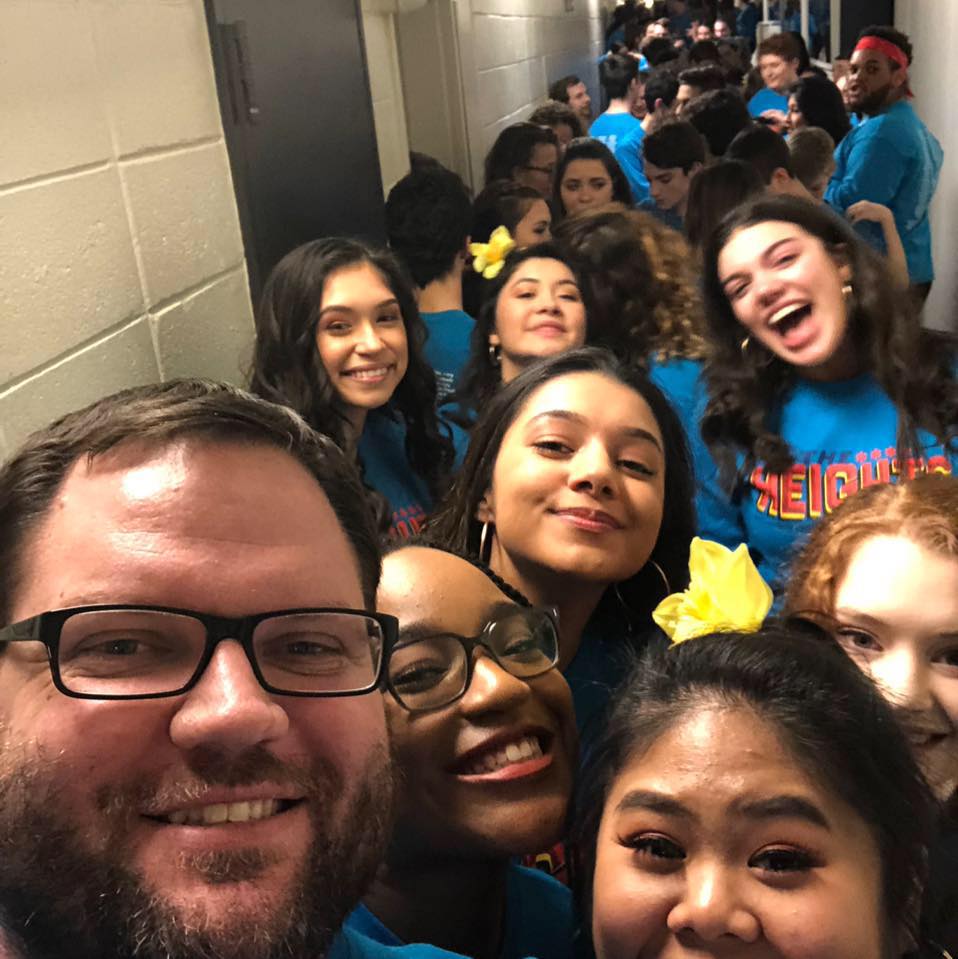 me; and the list goes on and on. Each has given me a piece of the puzzle I call my life.
Please describe your history with the Illinois High School Theatre Festival.
I started as Associate Director of Promotions and was part of that team for three years. I was then selected to be the Co-Producer for the 2019 IHSTF All-State Production of I
n the Heights. This year, I was Associate Director of Play Selection with Mr. Danny Yuska.
Do you have a specific IHSTF or ITA memory you would care to share?
I attended Festival as a student and remember watching
West Side Story and was genuinely amazed. Later, I was able to chaperone the Festival trip and saw that they were looking for people to serve on committee, which was when I applied and Carmel contacted me. I remember walking into the room for the first time of experienced Directors, tech staff, coordinators and more. Talk about intimidation for a guy from a small school with minimal experience comparatively. I didn't even know where to sit because everyone already seemed to know everyone and were all just chatting up a storm. I kind of stood there like a lost puppy. It was Ms. LaDonna Wilson who saw me and just started up a conversation and made me feel like I belonged in the committee. It was one of the best days I have ever had in my life -- to learn that I did belong in this community.
What do you hope for in regards to theatre in the state of Illinois?
One hope I have is for all students, especially ones from small schools, to know that theatre is home. State legislature officials need to recognize the importance of theatre skills as a life skill and learn to appreciate the work that students, directors, orchestra members, tech designers, costumers, make-up personnel--each deserve the right to have theatre in their school without fear that funding shortages will take that opportunity from them. I hope we continue to grow and never stop.
|
7 LIFE SKILLS EVERY THEATRE KID WILL LEARN
By Rachel Duncan, from Theatre Nerds
Introduction by
Jacqui Siegel,
ITA Creative Dramatics Rep.
A great "quick" read on why your child NEEDS to tryout theatre! Such transferable skills no matter what you end up doing!
Article Excerpt:
1. Self-Confidence
To command a stage, and deliver your lines or actions takes guts. The more we practice those skills, the more confident we become in trying new things, taking risks, and gaining personal confidence on the other stages in our lives. This kind of confidence definitely carries over into work, home, school, & anywhere we need to step out of our comfort zone or "perform."
2. Creative Thinking & Problem Solving
Being able to approach a problem from a different angle, or with unique abilities is truly a life skill. Thinking on your feet. Asking questions. Taking notes, adapting movement, adjus
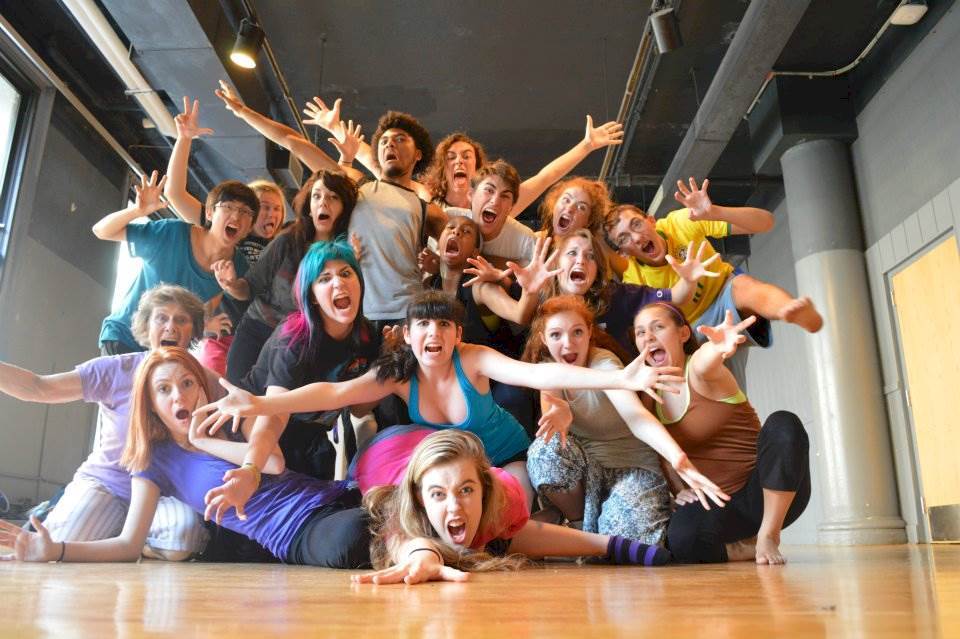 ting inflection, and trying everything again in a fresh way makes us more creative when we're tackling other areas in life. It makes us limber mentally and emotionally, and gives us options onstage and off.
|
EMOTIONAL DEVELOPMENT IN ADOLESCENCE: WHAT CAN BE LEARNED FEROM A HIGH SCHOOL THEATRE PROGRAM?
By
Reed W. Larson and Jane R. Brown,
University of Illinois, Urbana-Champaign.
Intro by Peggy Breaux Hupp,
ITA Theatre for Young Audience Rep.
I found this article about how being involved in theater helps emotional development. I have been directing or choreographing children's theater and high school theater for over 30 years and have found many of the points made in this article to be true. For those of you who teach, direct, and work with students, this is encouraging.
Article Excerpt:
Being in the program helped you not only identify what the emotion was but helped you learn how to effectively use that emotion and allow that emotion to exist without negative consequences.
-A cast member describing what she learned in a theater program.
What does positive emotional development look like in adolescence? Research shows that adolescents experience wide fluctuations in their daily emotional states (Larson & Richards, 1994; Larson & Sheeber, in press), and learning to manage these emotions is vital to their eventual effectiveness and well-being in adult work, parenting, and other roles (Ha ̈rtel, Zerbe, & Ashkanasy, 2005; Salovey & Sluyter, 1997). Yet, al- though progress has been made since Hauser and Safyer (1994) described the topic of adolescent emotional development as ''virtually uncharted territory'', knowledge about emotion in adolescence is comparatively limited (Saarni, Campos, Camras, & Witherington, 2006), particularly with regard to the processes of emotional development as they are experienced by adolescents.
|
LOOKING BACK
TO SEE THE PATH FORWARD
By Richard Arnold, Jr.,
ITA College & University Rep.
I have spent part of the holiday break going through some of my father's files. From 1964 to 1993, Richard Arnold Sr. taught theatre design at Northern Illinois University. As a 'theatre shop brat', I spent a lot of time in the O'Connell Theatre, helping him in scene shop or at rehearsals (image a 10 year old hanging out at a technical rehearsal of The Tempest - that was me). The 1960's and 1970's were an exciting time for theatre in Illinois. We came to DeKalb because the state university system was working to grow schools like NIU (the goal was 35,000 students or more). Down at the University of Illinois, the Krannert Center was built, and opened in 1969. It is not a coincidence that the growth of Chicago theatre scene began in the early 1970's.
I found an interesting pamphlet amongst my father's files - a prospectus supporting the creation of The Illinois State Theatre. It was an interesting idea. The Illinois State Theatre would provide one year internships for actors and technic
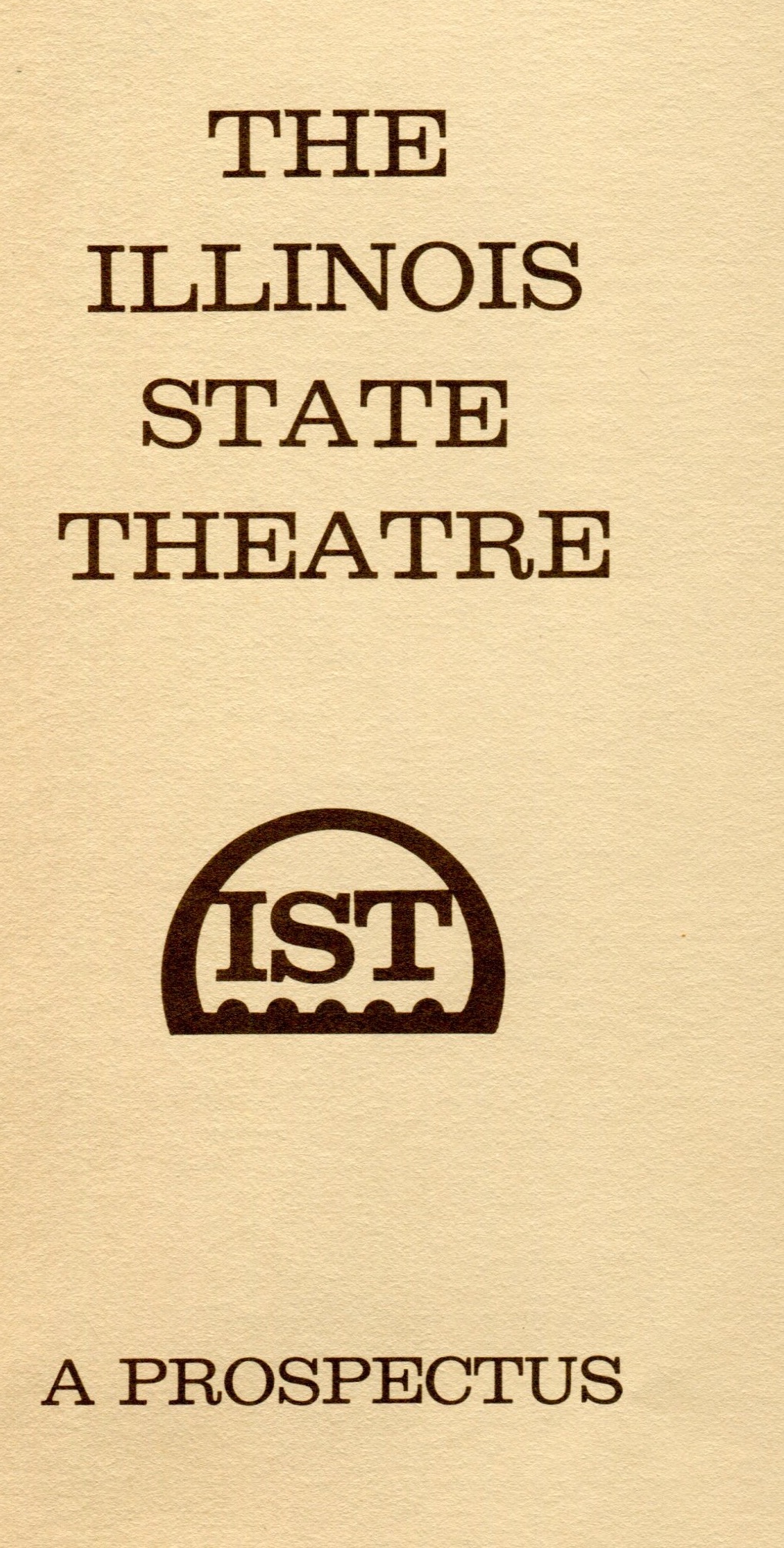 ians of member colleges and universities (the prospectus lists many institutions as potential members, including all the state schools and several private ones). The productions would be toured around the state, providing access to the arts for many smaller communities where cultural enrichment was limited. Additionally, members of the company would provide workshops in these communities. The prospectus suggests a plan that would begin touring in summer of 1977, so likely this began as an idea in 1974 or 1975 (just about the time of the first High School Theatre Festival).
Interestingly, the pamphlet does not credit anyone with the formation of this idea, nor does it list those who developed the prospectus. However, I know many of those who were leading college and university theatre programs often got together to discuss their programs, as well as the state of theatre in Illinois. They worked together to promote theatre in Illinois. Some things, like the Illinois High School Theatre Festival are still here, while other ideas, like The Illinois State Theatre, never got off the ground.
Now, I do not know if this state theatre is still a good idea (the
prospectus looks for money from the state and the organizational chart places the company under the Secretary of State's office), but I do think the ideas within this document that
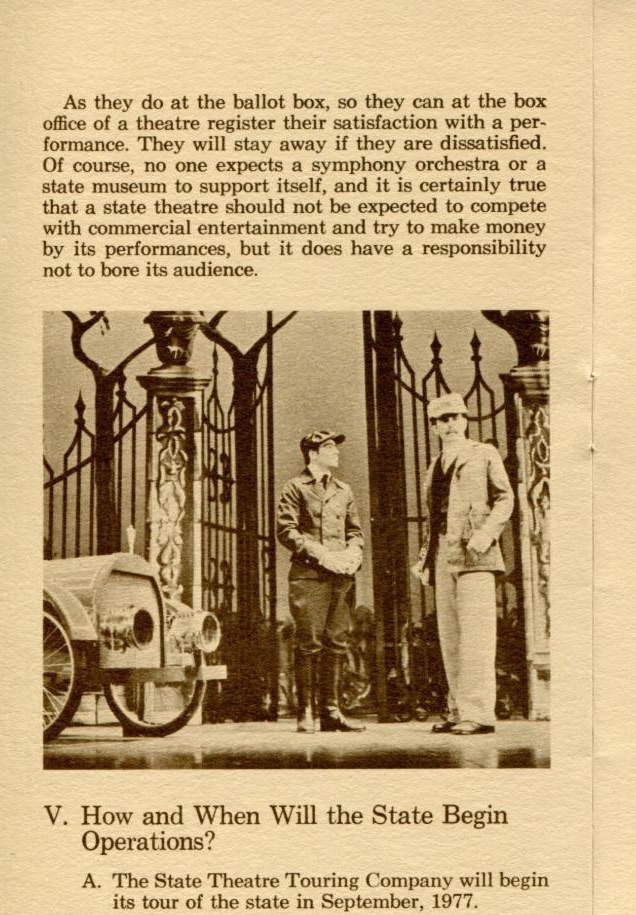 are still relevant and important today. I believe we need to work together to promote theatre in the state of Illinois, especially at colleges and universities. There are excellent theatre programs in Illinois. Further, there are a wide variety of types and styles of programs. Often, it seems as though we are competing for the same students, but the reality is quite different. Not every student will find success in every program. Their previous experiences, expectations of what a program will offer them, comfort in the size of the school, and so forth, lead each student to the institution that will be the 'best fit' (or at least that is what they hope). Our goal should be to help each student find the best place for them to flourish. By doing this, we will develop a better environment for growing theatre in the state, and help every college or university program to grow. We have opportunities to develop ideas, like IHSTF or IST that will improve the reputation of theatre in Illinois.
Discussing the future of the arts in Illinois and working together to create opportunities for theatre development. This is what those leaders of Illinois theatre did back in the 1960's, and something we need to do today.
|
|
|